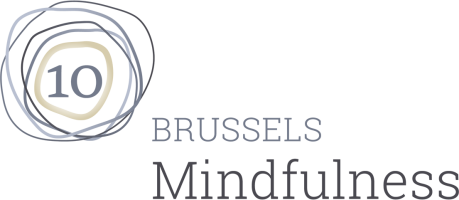I feel the contact of my feet with the ground, hear the sound of my shoes crunching the leaves as I walk and the birds sing, smell the wet leaves on the sidewalk, and I enjoy the different colours of the trees as if they had prepared a fashion show just for me. A moment of peace and beauty on my way into town. I had just stepped off my bus to go to a weekly company training and decided to take a new path through the park.
When I arrived, my mind was fresh and clear. Taking this new route, I keenly felt the difference to my usual direct way by bus and metro, where I might have been lost in thoughts.
Sometimes a small change can bring more freshness into your day. In our classes we regularly teach these habit releasers to help people step out of the autopilot mode.
Do you also have the impression that the franticness of the current pace of life is worse than before the pandemic? According to the World Health Organisation depression and anxiety have more than doubled in the last 3 years. In fact, the next pandemic is most likely related to mental health. People are more stressed and overwhelmed than ever before. I believe it has a lot to do with autopilot.
The autopilot mode can be helpful for freeing up some mental space when we are performing routine tasks, but it can also contribute to an increased feeling of stress and being stuck in unhelpful habits. It also reduces our creativity and flexibility to relate to the world around us.
When riding public transport or being in the supermarket, I have the impression that many people are on autopilot - staring at their phones, not aware of what is happening around them. But it’s not only in the day-to-day interactions – it seems that autopilot has taken over many other forms of life as well.
While the lockdown had been difficult it also had some positive sides effects. Not only did we have more time and things slowed down, but we were conscious about who and how we met and interacted with each other. Smaller reunions with more creativity were made possible, like Christmas Eve with an outdoor fire or long picnics in the park. We were forced to cut down on commuting and traveling, and therefore also on our CO2 emissions, and we were more conscious about shopping. Small cooperatives and organic food shops experienced a true boom as people had more time and were buying more local and more often organic.
In many ways the lockdown periods have helped us to find new ways of living, some of them even more conscious and positive. So why does it seem that we are all back on autopilot, back to our usual (and maybe more mindless) way of consuming, traveling, commuting, and interacting with each other?
Humans are creatures of habit and change is often slow to occur and mostly only when the old way of doing things does not work anymore.
In our courses we invite participants each week to consciously change a habit. The reason for this concept is that it can help you step out of autopilot mode by doing things differently than you are used to and being again more open and curious for what arises. Examples can be:
- Sit in a different chair in a meeting or at your family table than usual
- Switch the side of bed with your partner
- Drive/walk/bike a different way to work each day and observe the world around you.
- Change the order of your routine tasks in the morning (i.e. swap showering and breakfast)
- Take the train to a different town in the country you live in and explore it or take the metro to an underexplored part of the city you live in and explore with a beginner’s mind.
Is there a way how we could use what we learned in the lockdown periods in our day-to-day life without wishing for another lockdown or crisis to arise? I believe that’s where mindfulness comes in very handy. Mindfulness is not only about sitting on a cushion and meditating, but it is also about how we live our lives. Meditation can help us to be more conscious in our day-to-day lives but when it is not transferred into the rest of life it has no value on it.
It might be helpful to take a moment to contemplate the different ways how you interact with others and the world around you. How do you relate to your family/friends/colleagues and to the world?
If you combine habit releasers with a mindful attitude, you will not only enjoy the small pleasures of life more but also help better take care of the world inside and around you.








